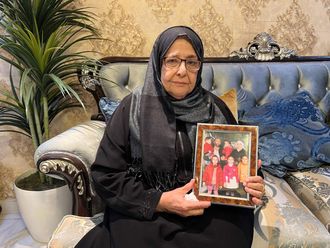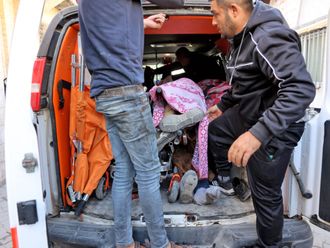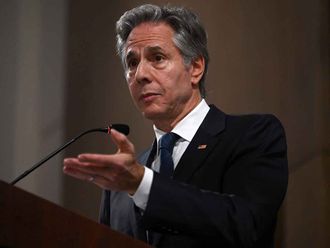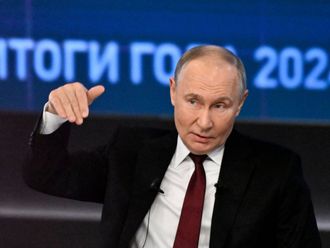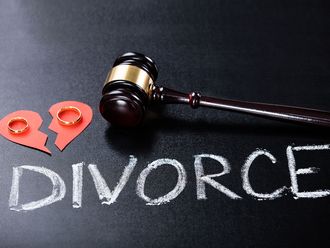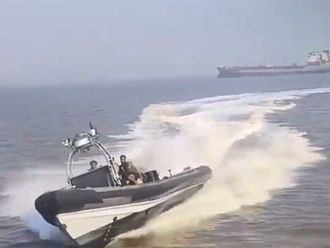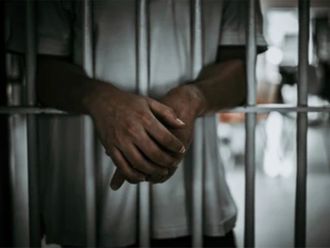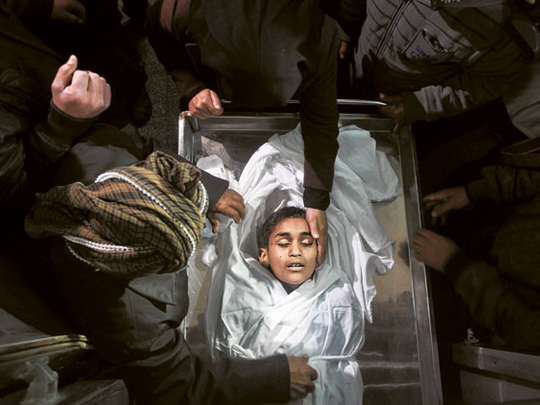
Gaza City: A fresh Israeli air raid on Gaza killed a Palestinian schoolboy yesterday and an elderly man, raising the death toll to 18 in less than 48 hours and clouding hopes of restoring a tacit truce.
The spike in violence erupted on Friday afternoon when an Israeli strike killed the leader of the Popular Resistance Committees (PRC), sparking a bloody cross-border exchange in which 15 Gazans were killed and more than 100 rockets fired at Israel, in the most deadly 24-hour period in more than three years.
Since then, two more people have been killed, raising the toll to 18, including 16 fighters and two civilians, medics said. Another 30 people were wounded, six of whom were in critical condition.
The European Union and United States urged both sides to restore calm but Palestinian fighters vowed to avenge their dead and Israel threatened to hit back if its citizens came under renewed rocket attacks from the coastal enclave.
The latest death was in Jabalia refugee camp, north of Gaza City, where an air strike killed 12-year-old Ayoub Asaliya who was on his way to school and also injured his seven-year-old brother, Palestinian medical sources said.
108 rockets fired
Shortly afterwards, another person was injured in a raid east of Gaza City, they said. There was no immediate comment from the military.
By Saturday evening, the army said 108 rockets and projectiles had been fired by fighters across the border, with 80 hitting Israeli territory, while another 28 were intercepted by the Iron Dome anti-missile system.
Four people were wounded, medical sources said, with press reports identifying them as Thai agricultural workers. Since midnight, Palestinian fighters fired another eight missiles at southern Israel, media reports said, but there was no immediate confirmation from Israeli officials.
On Sunday, residents of southern Israel were staying close to their bomb shelters and schools were cancelled across the region, the education ministry said.
The military, which has conducted at least 20 air strikes since Friday, says its operations have been aimed at halting the rocket fire on southern Israel.
Yesterday, it said the air force had hit a site "used by terror organisations to fire long-range rockets into Israel" capable of reaching more than 40 kilometres.
A spokesman for Israeli Prime Minister Benjamin Netanyahu confirmed the hit, saying they had destroyed a launch site for Iranian-built Fajr-5 missiles.
‘Intelligence work'
"The IAF destroyed launching pits of Fajr long-range rockets that can hit Tel Aviv," Ofir Gendelman wrote in a posting on Twitter. "This is the result of meticulous intelligence work."
Of the dead, ten were fighters from the radical Jihad movement, while another five were from the PRC and included the group's leader, Zuheir Al Qaisi, who died in the first strike on Friday.
Al Qaisi was killed when a missile hit his car in the Tel Al Hawa neighbourhood west of Gaza City. Another PRC member also died in the hit.
The military said Al Qaisi was involved in planning and directing a deadly attack in Israel's southern Negev desert last August by fighters who sneaked across the border from Egypt's Sinai peninsula, killing eight Israelis.
They said he was planning another similar attack "via Sinai in the coming days." In a statement late on Saturday, Israeli Defence Minister Ehud Barak said he expected the violence to last "another day or two" and vowed the military would continue to target "anyone planning to attack Israeli citizens."
Hamas blasts attacks
Hamas, which rules Gaza, has maintained a tacit truce with Israel, but other groups regularly fire rockets and mortars across the border.
Hamas denounced the Israeli strikes and said it had asked Egypt to help negotiate an end to the violence.
"We really want to put an end to the [Israeli] aggression in the Gaza Strip and the contacts that we have made with Egypt are to that end," Hamas spokesman Taher Al Nunu said, saying a ceasefire would have to be applied by both sides.
The spike in violence prompted Washington and Brussels to urge both parties to work to restore calm, while the Arab League accused Israel of carrying out a "massacre" and called for a tough stance from the international community.


